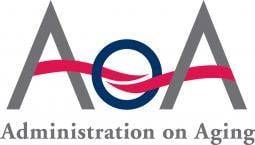Ensure an Independent Life for Your Loved One
Government housing assistance can help older adults with low incomes
Government housing assistance is available to low-income elderly through several programs in the form of affordable housing or rental assistance.
Most government housing assistance for the elderly is administered by local public housing authorities (PHAs). Other agencies include the local Department of Housing and Community Development, the respective State Housing Finance Agencies and the U.S. Department of Agriculture's (USDA) Rural Development office. Funds from the U.S. Department of Housing and Urban Development (HUD) and USDA's Rural Housing Services also support some housing assistance programs.
All government housing assistance for the elderly are over-subscribed, with waiting lists that vary in length.
Government housing assistance available to low-income older persons include the following: the HOPE for Elderly Independence Program, the Housing Choice Voucher Program, Local Rental Assistance Programs, Public Housing, the Rural Housing Service Rental Assistance Program, and the Section 202 Supportive Housing for the Elderly Program.
Importance of government housing assistance to older persons
- Provides assistance to a majority of older renters who have excessive housing costs.
- Provides low-income elderly with service-enriched options to live independently.
Types of government housing assistance
HOPE for Elderly Independence Program
Some PHAs administer the Homeownership and Opportunity for People Everywhere (HOPE) program which provides a combination of HUD Section 8 rental assistance with case management and supportive services to low-income elderly persons. The aim is to expand access to Section 8 rental assistance to the frail elderly tenant population and help them avoid nursing home placement or other restrictive settings when home and community-based options are appropriate. Contact the local PHA for availability and more information about the program. to locate the local PHA, refer to the blue pages of the local telephone directory or call HUD at (202)708-1112.
Eligibility: Elderly persons, aged 62 or older, who have difficulty performing at least three activities of daily living (e.g., eating, bathing, grooming, dressing) and home management activities (e.g., housekeeping, laundry, shopping or getting to and from one place to another).
Housing Choice Voucher / Section 8 Program
The Housing Choice Voucher (or "Section 8") program, administered locally by PHAs, provides very low-income families, the elderly, and persons with disability affordable, decent, and sanitary housing in the private market. Participants are free to find their own housing that meets the requirements of the program. Housing assistance is provided on behalf of the family or individual.
Eligibility: In general, the family's income may not exceed 50% of the median income for the county or metropolitan area in which the family chooses to live. This is determined by the PHA based on the total annual gross income and family size and is limited to U.S. citizens and specified categories of non-citizens. The local PHA can provide information about income limits for the area and family size.
Local Rental Assistance Programs
Local rental assistance may be available through the HOME Investment Partnership Program. Contact the local Community Housing and Development office by referring to the blue pages of the local telephone directory.
Public Housing
Public housing provides affordable, decent, and safe rental housing for eligible low-income families, the elderly, and persons with disabilities. Tenants typically pay no more than 30 percent of their monthly income for rent. Local PHAs that receive funding from the federal government own and operate public housing complexes. For more information about public housing and income limits, visit www.hud.gov/phprog.cfm. to locate the local PHA, refer to the blue pages of the local telephone directory or call HUD at (202)708-1112. Eligibility: Public housing is limited to low-income families and individuals. The local PHA determines the applicant's eligibility based on: 1) annual gross income; 2) status: elderly 62+, a person with a disability, or as a family; and, 3) U.S. citizenship or eligible immigration status. If eligible, the PHA will check references to ensure that applicant and family members will be good tenants.
Rural Housing Service (RHS) - Rental Assistance Program (Section 521)
For rural America, rent subsidies under the U.S. Department of Agriculture's RHS Rental Assistance Program (Section 521) ensure that elderly, disabled, and low-income residents of multi-family housing complexes financed by RHS are able to afford rent payments. With the help of the Rental Assistance Program, a qualified applicant pays no more than 30 percent of his or her income for housing. to determine eligibility or to apply, please contact the Rural Development State office. The closest one can be found by calling Rural Housing Service National office at (202)720-4323.
Section 202 Supportive Housing for the Elderly Program
The Section 202 Program is provided by private, nonprofit housing and service-oriented organizations that have received capital advances from the government to finance the construction and rehabilitation of structures. These structures serve as supportive housing for very low-income elderly persons. The Section 202 program provides rent subsidies for the projects to help make them affordable. Supportive services provided under the Section 202 program include meals, transportation, and accommodations for residents with disabilities. Contact the local housing authority (see above). Eligibility: The program benefits low-income residents age 62 years or older.
Selection preferences
PHAs sometimes give preference to specific groups of individuals or families. This enables the PHAs to direct their limited housing resources to people with the greatest housing needs. Since the demand for housing assistance often exceeds the limited resources available to HUD and the local PHAs, long waiting periods are common. It is not uncommon for a PHA to close its waiting list when there are more people on the list than can be assisted in the near future. Examples of local housing preferences for receiving assistance include:
- People experiencing high rent burden (rent is greater than 50% of income).
- Residents who live and/or work in the jurisdiction.
- The homeless or those living in substandard housing.
- Veterans and veterans' families.
- Victims of reprisals or hate crimes.
- Working families and those unable to work because of age or disability.


